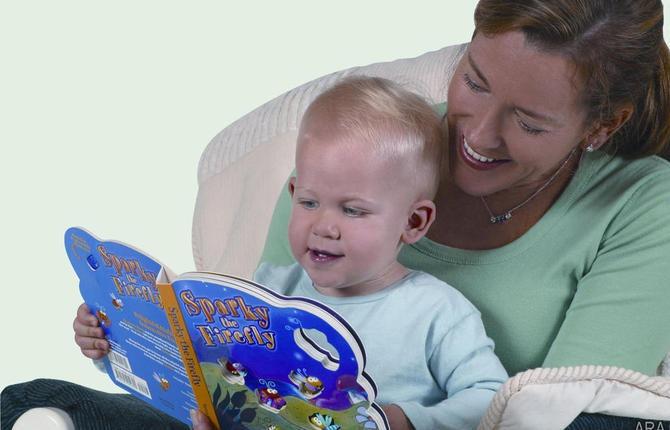
Top tips to help your child read at any age
A child's natural "learning window" is between the ages of birth and 4 to 5 years, research has shown. But the typical school doesn't start teaching children to read until kindergarten. For parents, it may seem challenging to compete with TV and video games, but helping your child learn to read is not only rewarding, but can prepare them for educational success.
Reading can be easier for kids to pick up and a more enjoyable activity when parents start early, as early as the day they're born, says Dr. Robert Titzer. Research proves that early readers tend to enjoy reading more, do better in school and are less likely to drop out than those children with poor reading skills. However, myths surrounding early reading persist and include:
Myth: I don't need to focus on reading at home. All children will learn how to read by the end of kindergarten.
Studies show that if a child is not reading at grade level by the end of the first grade, chances are very slim that he will ever catch up to grade level. Forty per cent of 8-year-olds cannot read independently, which indicates the reading skills acquired in kindergarten are not enough.
Myth: It's harmful to my child to learn how to read early because they'll be ahead of the rest of their class.
Children who enter school already equipped with reading skills have higher self-esteem than children who do not, according to research.
Myth: A focus on learning to read is pushing a child too hard. Just let kids be kids.
Reading is a great way to spark imagination and early readers often have a lifelong love of books. The key is for parents to make reading fun, never a chore.
Titzer, a renowned infant learning and development expert, developed the Your Baby Can Read early language development system to change how and when children learn to read. Generally designed for children between the ages of six months and 5 years, the system uses tools like games, word cards, educational DVDs and music to help parents teach children how to read and to make it a fun activity for everyone.
Titzer offers the following tips to help parents encourage their young children to read:
* Start reading with your child from the day they're born. A baby's brain thrives on stimulation and, while it may not seem like they're paying attention, they're absorbing everything going on around them.
* Make reading fun. Use different character voices, act out a story, set aside a special story time with all family members and encourage children to participate in everything from turning pages to pointing out words.
* Use multimedia learning to appeal to different personality types and learning styles.
* Have a variety of books on hand and a comfortable place to read each day.
* Visit the library and encourage children to choose books they're interested in.
For more information visit YourBabyCanRead.com. (ARA)







